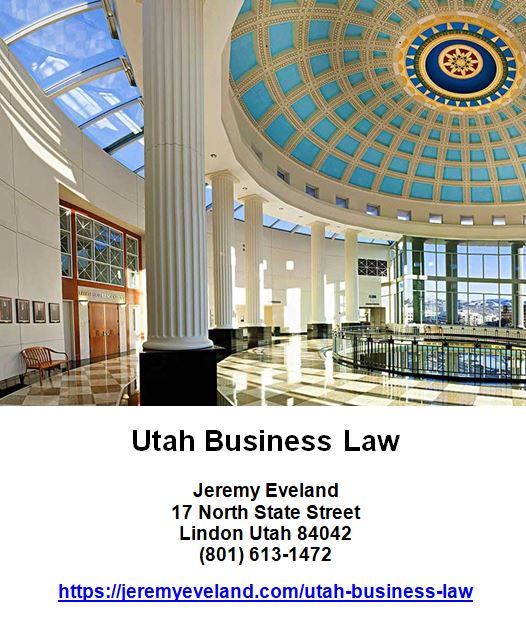What Is The Law On Employee Contracts?
In Utah, an employer and employee may enter into a contract for an employee’s services. Generally, these contracts must be in writing and signed by both parties, and they must include certain information, such as job duties, hours of work, and compensation. Additionally, the contract must not contain any illegal or unconscionable provisions.
Employee contracts may be oral or written, and they may be for a specific duration or they may be open-ended. The contract may also include provisions such as vacation and sick leave, termination of employment, and noncompete restrictions. In order for a noncompete clause to be enforceable, it must be reasonable in its scope and duration, and it must be necessary to protect the employer’s legitimate business interests.
In Utah, employee contracts may also be subject to collective bargaining agreements. Employers and employees can negotiate the terms of the contract, including wages, hours, and working conditions. The collective bargaining agreement must be in writing and signed by both parties. It must also include a clear and accurate description of the terms of the agreement.
Utah law also prohibits employers from making employees sign contracts that waive their rights to receive wages or other compensation owed to them. In addition, employers may not require employees to sign contracts that waive their rights to pursue workers’ compensation benefits or to file a complaint with the Utah Labor Commission.
Basically, employee contracts are an important part of the employer-employee relationship in the state of Utah. Employers and employees should be aware of the legal requirements of such contracts and should consult with an attorney if they have questions or concerns. Employee contracts are not required for employees to work for employers.
Negotiation of Terms
The negotiation of terms in an employer-employee contract in Utah is a complex process that requires expertise from both parties. The negotiation process must take into account the legal requirements of the state, including the rights of both parties, the wages and benefits that can be offered, and any other contractual obligations. Employers in Utah must also adhere to certain labor laws that protect employees from unfair treatment.
When negotiating the terms of an employer-employee contract in Utah, employers must consider the safety of the workplace, the working conditions, the wages and benefits being offered, and any applicable labor laws. Employers should also ensure that the contract is written clearly and thoroughly to avoid any misunderstandings or misinterpretations. Employers must also ensure that any changes made to the contract are done in writing and signed by both parties before they become binding.
Employees also have the right to negotiate the terms of the contract. This includes the wages and benefits being offered and the terms of the job. Employees should also ensure that their rights and interests are protected in the contract and that they are aware of their obligations under the contract. All of these negotiations should be done in good faith, with both parties striving to reach an agreement that is satisfactory to all parties involved.
The negotiation of terms in an employer-employee contract in Utah can be a lengthy and complicated process, but it is essential for both parties to ensure that the contract is fair, reasonable, and meets the needs of both parties. Negotiations should be done in good faith, with both parties striving for a mutually beneficial agreement. Having a written contract that meets the legal requirements of the state can help ensure that all parties are protected and that their rights are respected.
Employee Benefits
Employee benefits are an important part of an employer-employee contract in Utah. Employers must provide certain benefits to employees in order to remain compliant with state and federal laws. In Utah, employers are required to provide workers’ compensation insurance, insurance coverage for unemployment, and coverage for Social Security and Medicare. Additionally, most employers in Utah offer their employees additional benefits such as health insurance, paid vacation, flexible spending accounts, and retirement plans.
Health insurance is an important benefit that employers must provide to their employees. The state of Utah offers a variety of health insurance options through its Health Insurance Marketplace, and employers must ensure that they are providing adequate coverage to their employees. Employers may also offer additional benefits such as vision and dental insurance. Additionally, employers may offer employees the ability to participate in flexible spending accounts, which allow employees to set aside money on a pre-tax basis for certain medical expenses.
Paid vacation is another important benefit for employees in Utah. Employers must provide employees with at least 12 days of paid vacation per year, as well as an additional three days of personal time off. Employees may also be eligible for additional vacation days depending on their length of service.
Retirement plans are also important for employees in Utah. Employers are required to contribute to a retirement plan for all employees, and there are a variety of options such as a 401(k) or a defined benefit plan. Employees may also have the option to contribute to their own retirement plan through a Roth IRA.
Employers in Utah must provide certain benefits to their employees in order to remain compliant with state and federal laws. These benefits include health insurance, paid vacation, flexible spending accounts, and retirement plans. Providing these benefits helps to ensure that employees in Utah are getting the most out of their employment.
Termination of Contract
Termination of an employee contract in Utah is a serious matter and must be handled with the utmost care and respect for both the employer and the employee. It is important for employers to understand the laws and regulations surrounding termination of an employee contract in the state of Utah. Generally speaking, an employer may terminate an employee contract without cause in Utah as long as the employer provides the employee with written notice that states the reasons for the termination. It is important to note that an employer cannot terminate an employee contract based on an employee’s race, religion, disability, national origin, gender, or age. Additionally, an employer must not terminate an employee contract in retaliation for the employee filing a complaint or exercising their rights under the law.
The employer must also provide the employee with appropriate notice of termination and the opportunity to respond to the notice. An employee in Utah must receive a written notice of termination that includes the termination date, the reason for the termination, and any applicable severance package. If an employer terminates an employee’s contract without cause, the employer may be required to pay the employee a severance package in accordance with Utah law.
It is important for employers to understand their obligations when terminating an employee contract in Utah. An employer must ensure that the termination is done in accordance with the law and that the employee is treated fairly and respectfully.
Equal Employment Opportunity Commission
The Equal Employment Opportunity Commission (EEOC) is an important part of any employer-employee contract in Utah. This federal agency enforces laws prohibiting discrimination in the workplace and ensures that employers provide equal opportunity to all employees. The EEOC defines discrimination as treating someone unfavorably because of their race, color, religion, sex, national origin, age, disability, or genetic information. This includes any decisions related to hiring, firing, promotions, or other terms and conditions of employment.
In order to comply with the EEOC, employers in Utah must provide equal employment opportunities to all employees, regardless of their protected characteristic. This includes providing a work environment free of harassment and discrimination, creating policies and practices that don’t disadvantage any employee due to a protected characteristic, and creating a complaint procedure to address grievances in a timely manner. Employers must also provide reasonable accommodations to disabled employees and provide equal pay for equal work, regardless of the employee’s protected characteristic.
In addition to including EEOC requirements in employer-employee contracts, employers in Utah should also have an EEOC-compliant anti-discrimination and anti-harassment policy in place. This policy should be communicated to all employees and should provide information on how to report incidents of discrimination or harassment. Employers should also conduct regular training sessions to ensure that employees are aware of their rights and responsibilities under the EEOC. By taking these steps, employers can ensure that all employees are treated fairly and with respect in the workplace.
Employer Legal Consultation
When you need legal help from an Attorney that represents Employers, call Jeremy D. Eveland, MBA, JD (801) 613-1472 for a consultation.
Jeremy Eveland
17 North State Street
Lindon UT 84042
(801) 613-1472
Recent Posts
The 10 Essential Elements of Business Succession Planning
Business Succession Lawyer Taylorsville Utah
Business Succession Lawyer South Jordan Utah
Business Succession Lawyer Lehi Utah
Business Succession Lawyer Millcreek Utah
















